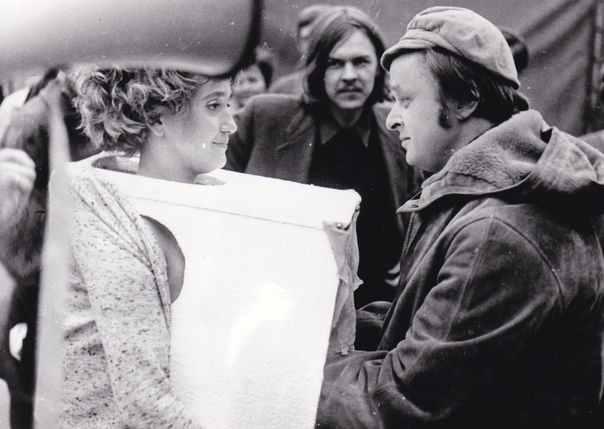Timely Lessons on Feminist Dissidence
By Flavia Dima

© sixpackfilm
This year’s Berlinale Shorts Special Programme “1968 – Red Flags for Everyone” commemorates the 50th anniversary of the left-leaning activist movements that swept Europe at the end of the 1960s. It showcases a broad selection of shorts which tackle subversive topics such as women’s rights, class conscience and the deconstruction of classical narratives. What strikes the viewer during this marathon-screening of twelve films, accompanied by short Q&A sessions of their surviving crew members, is not just that the now elderly directors have retained the sense of rebellion and youthfulness conveyed in their films, but also that the subject matter and approaches of these historical films are still highly relevant. Here, I will be focusing on the shorts which touched upon issues related to feminist thought and action – by briefly analysing how the female directors included in the programme subverted both medium, narrative and gender role in their approach.
With the rise of second-wave feminism coinciding with social unrest in the late sixties, some of the films in the programme directly tackle issues related to femininity. PROGRAMMHINWEISE (dir. Christiane Gehner, 1970) acts as a parody of public service announcements: by appropriating a form usually reserved for grave news, Gehner discusses some urgent women’s rights topics and the bodily aspect of being female. A feature which is also explored in Valie Export’s TAPP- UND TASTKINO (1968), where the director/performer applies a radical understanding of touch and of expanded cinema which incorporates her body: she encases her upper body in a square frame with curtains, inviting passers-by to touch her breasts. Transgressive political actions by women are also an important part of ANTIGONE (dir. Ula Stöckl, 1964), where the classical myth is spun into a parable on the risks of breaking the cruel and arbitrary rules of dictatorship. It also explores the notion of deconstructing classical drama: by stripping down the three-hour-long play into just nine minutes of its barest narrative components, Stöckl rebels against ossified dramatic and narrative formulas, bringing its most essential and urgent aspects to the fore. This re-visitation of canonical stories is also present in FUNDEVOGEL (dir. Claudia von Alemann, 1967), where classical German fairy tales are not seen as magical and allegorical, rather as profoundly violent and chaotic – which von Alemann sets in direct correlation with the seemingly intrinsic savage impulses of children.
To observe, that certain subjects are still very present in contemporary feminist activism, shows the continuity of thought between the movements of 1968 and activist actions today. It even highlights how much these topics have been the subject of struggle and points towards the beginnings of issues which were still at the fringe back then, but that have now taken centre-stage. Above all, it shows the ongoing necessity of a new (cinematic) language, of a new apprehension and understanding of history through a female perspective.

